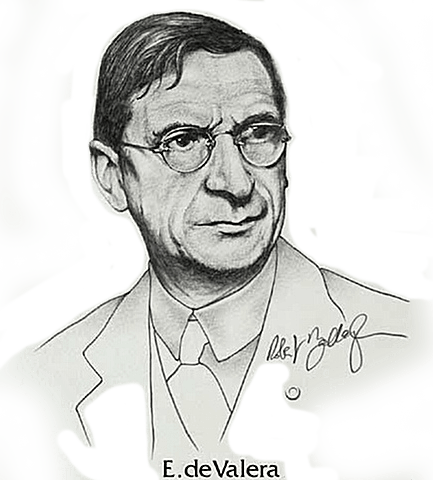The hidden reason people don’t want to go back to the office.
The article discusses how some remote workers, known as “homers,” are taking on second jobs while working from home. It highlights a case of a Washington DC assistant principal who also worked as a principal in Rhode Island. It suggests that remote work environments, lacking supervision, may make it easier for individuals to engage in moonlighting. Survey results indicate that a significant percentage of remote workers admit to working additional hours for another company, with perceived negative effects on their primary job performance increasing with the number of hours worked outside their primary job. Overall, the article questions the myth of remote workers using their extra time for self-improvement and loyalty to their primary employers, suggesting that some may be prioritizing personal financial gain or other reasons.
Stories of Emotional Leadership
The article discusses the resurgence of emotion’s importance in understanding human behavior, particularly in leadership, contrasting the historical emphasis on reason with the contemporary recognition of emotional intelligence (EQ) and its impact on leadership effectiveness. It highlights the shift from viewing leadership as purely intellectual to acknowledging its emotional dimensions, as evidenced by works like “Resonant Leadership” and “Primal Leadership.” Emotions, it argues, play a crucial role in shaping leadership effectiveness, with leaders able to influence others through the emotions they evoke. Storytelling emerges as a powerful tool for conveying emotion and shaping leadership narratives, as evidenced by a study where professionals recounted stories of individuals who profoundly impacted their lives, with 70% of these stories being primarily emotional in nature. Ultimately, the article underscores the profound impact of emotions on leadership and the importance of storytelling in shaping emotional experiences and leadership legacies.
How to Overcome Return-to-Office Resistance
Many organizations that allowed knowledge workers to do their jobs remotely during the pandemic now seem committed to getting them back together in the office, and bosses are trying to get their teams on board. Although the pandemic has been a once-in-a-century disruption to business, navigating this challenge is no different than managing any other kind of organizational change with professional and personal implications. The key is to engage one on one with people to move them from active resistance to neutral or supportive positions.
Don’t Underestimate the Power of Self-Reflection
Research shows the habit of reflection can separate extraordinary professionals from mediocre ones. But how do you sort which experiences are most significant for your development? To answer this questions, the authors asked 442 executives to reflect on which experiences most advanced their professional development and had the most impact on making them better leaders. Three distinct themes arose through their analysis: surprise, frustration, and failure. Reflections that involved one or more or of these sentiments proved to be the most valuable in helping the leaders grow. Surprise, frustration, and failure. Cognitive, emotional, and behavioral. These parts of you are constantly in motion and if you don’t give them time to rest and reflect upon what you learned from them, you will surely fatigue.
Vladimir Putin’s search for ‘Moby Dick’
The article draws parallels between Russian President Vladimir Putin and the character Captain Ahab from Herman Melville’s “Moby Dick,” portraying both as driven by personal vendettas and exhibiting traits like paranoia, narcissism, and obsession. Putin’s pursuit of Ukraine is likened to Ahab’s quest for revenge against Moby Dick, with Ukraine symbolizing Putin’s “lost leg” that he seeks to recover at any cost. The comparison highlights Putin’s willingness to risk his country’s well-being and his fixation on territorial expansion, despite the potential economic and geopolitical consequences. Ultimately, the article suggests that Putin’s outdated mindset and inability to control the narrative in today’s media landscape may lead to his downfall, akin to Ahab’s tragic fate in Melville’s novel.
When business aligns with activism
The article discusses the recent decisions by major corporations like McDonald’s, Starbucks, Coca-Cola, and PepsiCo to suspend operations in Russia in response to the invasion of Ukraine. It highlights the significance of this move in aligning business interests with public opinion, particularly among socially active consumers. Despite the economic risks involved, these companies faced mounting pressure to act due to public sentiment and the potential reputational damage of remaining in Russia. The temporary closures represent a form of corporate activism aimed at sending a message to Russian leaders, though the article raises questions about the long-term commitment of corporations to human rights and democracy amid evolving geopolitical challenges
Embrace Your Flaws: It Makes You Relatable
The article challenges the notion of seeking perfection in leadership, arguing that revealing weaknesses can actually enhance leadership effectiveness. It emphasizes that everyone has weaknesses and suggests that openly acknowledging them can foster empathy and inspire team achievement. Examples of successful leaders, such as Richard Branson and Paul Orfalea, who have openly discussed their weaknesses, are provided to illustrate this point. By embracing imperfections and discussing them publicly, leaders can appear more human and relatable, ultimately strengthening their leadership position and inspiring their teams.
Do What You Musk
The article questions Elon Musk’s recent acquisition of Twitter, contrasting it with his successful ventures in the automotive and aerospace industries. It highlights the discrepancy between Musk’s expertise in hardware and software and the nature of Twitter as a micro-platform for communication. Skepticism is expressed regarding Musk’s ability to achieve his stated goals of championing free speech and cracking down on spambots on Twitter, given the platform’s existing moderation challenges. The article suggests that Musk’s involvement may not significantly impact Twitter’s performance, as evidenced by the lack of movement in Twitter’s share price following the announcement of Musk’s purchase. Ultimately, the article concludes that Musk’s foray into Twitter may be more about his personal values and ambitions than about financial gain, questioning the potential impact of his involvement on the platform and its users.
“Exercise Guilt” Is Real — But It Shouldn’t Be
The article introduces the concept of “exercise guilt” and explores its implications on fitness goals and overall well-being. It suggests that feelings of guilt often arise from a misunderstanding of the difference between “movement” and “exercise,” highlighting the importance of incorporating daily physical activity into one’s routine. With the transition into the post-pandemic world, the article encourages individuals, especially young professionals, to reassess their health habits and adopt a more moderate approach to fitness, thereby alleviating feelings of guilt and promoting overall wellness.
5 Self-Sabotaging Traps to Avoid at Work
The article discusses five common missteps people make in their early careers and offers advice on how to avoid them. It emphasizes the importance of balancing confidence with humility, being mindful of communication with senior colleagues, avoiding boastfulness about relationships with higher-ups, prioritizing quality over quantity in task completion, and advocating for one’s own perspective while avoiding groupthink. By addressing these pitfalls early on, individuals can position themselves for success and avoid potential setbacks in their professional development.
















 Subscribe to my channel
Subscribe to my channel
